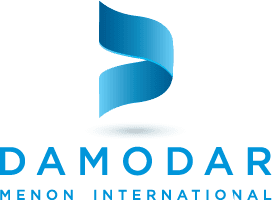Kanchipuram silk surged into the global limelight following the extravagant pre-wedding celebrations of Anant Ambani, a scion of Reliance Industries, India. The exquisite handwoven golden Kanchipuram saree donned by Nita Ambani, Chairperson of Reliance Foundation, epitomized the rich traditional craftsmanship of Indian textiles. This showcase not only increased the demand for silk woven fabric suppliers from India but also propelled
the Indian textile industry towards a projected revenue increase of 7 – 9% for the fiscal year, thus boosting the silk weaving sector's financial prospects.
Among the wide range of silk sarees found in India, Kanchipuram holds a prominent position in the global textile markets. Despite its production centered in a small town in Tamil Nadu on the Palar River, Kanchipuram silk fabric manufacturers in India are available worldwide, thanks to trading platforms like TEXchange Global and Damodar Menon International.
The Kanchipuram Silk Soiree
India is the second largest silk manufacturer in the world. Around 9.2 million people from rural and semi-urban areas are employed in India’s sericulture industry. Kanchipuram is popularly known as the silk city of India. Nearly 60k silk looms are currently operating in Kanchipuram, with annual turnover exceeding 200 crores. Exports accounted for almost INR 3 Cr in fiscal year 2022 – 2023.
Andhra Pradesh, Karnataka, West Bengal, Gujarat, Bihar, Assam, Jammu & Kashmir, Bihar, Assam, Maharashtra, and Tamil Nadu are major silk fabric suppliers in India. In the financial year 2023 alone, India produced 36,582 metric tons of silk, representing a year-on- year growth of 3.4%. This is particularly encouraging, considering the 15% decline in revenue in 2023.
Kanchipuram saree’s origin dates back many centuries when silk sarees were woven only on temple premises. Produced from the mulberry tree worm, Kanchipuram silk sarees are available in many colors and heavy gold designs. Showcasing contrasting pallu and borders, the traditional designs’ consist of South Indian temple gopurams and natural elements like birds, trees, leaves, peacock eyes, nightingale eyes, and rudraksha beads. Keeping with modern fashion trends, Kanchipuram sarees are now available in different eclectic designs, like crystal work embroidery, images of gods and goddesses, shlokas and stories, and ancient paintings.
Kanchipuram sarees have a distinctive weaving technique. Here, three single-thread yarns, along with gold or silver zari, are weaved together. The border, pallu, and body are knitted individually and then weaved together. The gold zari generally comes from Surat, while the silk is obtained from Karnataka. To maintain the silk's texture, lustier, and longevity at a lower cost, manufacturers replace gold and silver with copper and brass. Skilled weavers from neighboring regions like Salem, Coimbatore, Arani, and Kumbakonam are employed.
Cost and Quality
Kanchipuram silk is of premium quality, and the sarees are quite expensive. They start from INR 12000 and can go up to INR 10lac, depending upon the silk quality, design, and weave.
However, with increasing consumer preferences for low-priced, lightweight silk sarees with simple designs and colors, silk fabric manufacturers in India have started blending silk with polyester or cotton fabrics to lower the price. For instance, the weavers make the body in cotton and the border and pallu in silk.
However, this has adversely affected the reputation of the silk industry, negatively impacting sales. Therefore, the government of Tamil Nadu, Tamil Nadu Zari, and TIFAC have established a state-of-the-art testing unit in Kanchipuram that checks and determines the quality of gold and silver in the embroidery.
The silk industry was initially dominated by only top textile companies in India, which procured silk from local weavers and sold it nationally. Today, private traders like Chennai Silks and Sri Kumaran Thangamaligai and global traders like Damodar Menon International acquire silk fabric from independent weavers and suppliers and make it available across international markets. If you are searching for online buying and selling Textile fabric, TEXchange Global serves as the cornerstone for exports and imports, providing a platform for textile companies in India to connect and trade across international markets.
